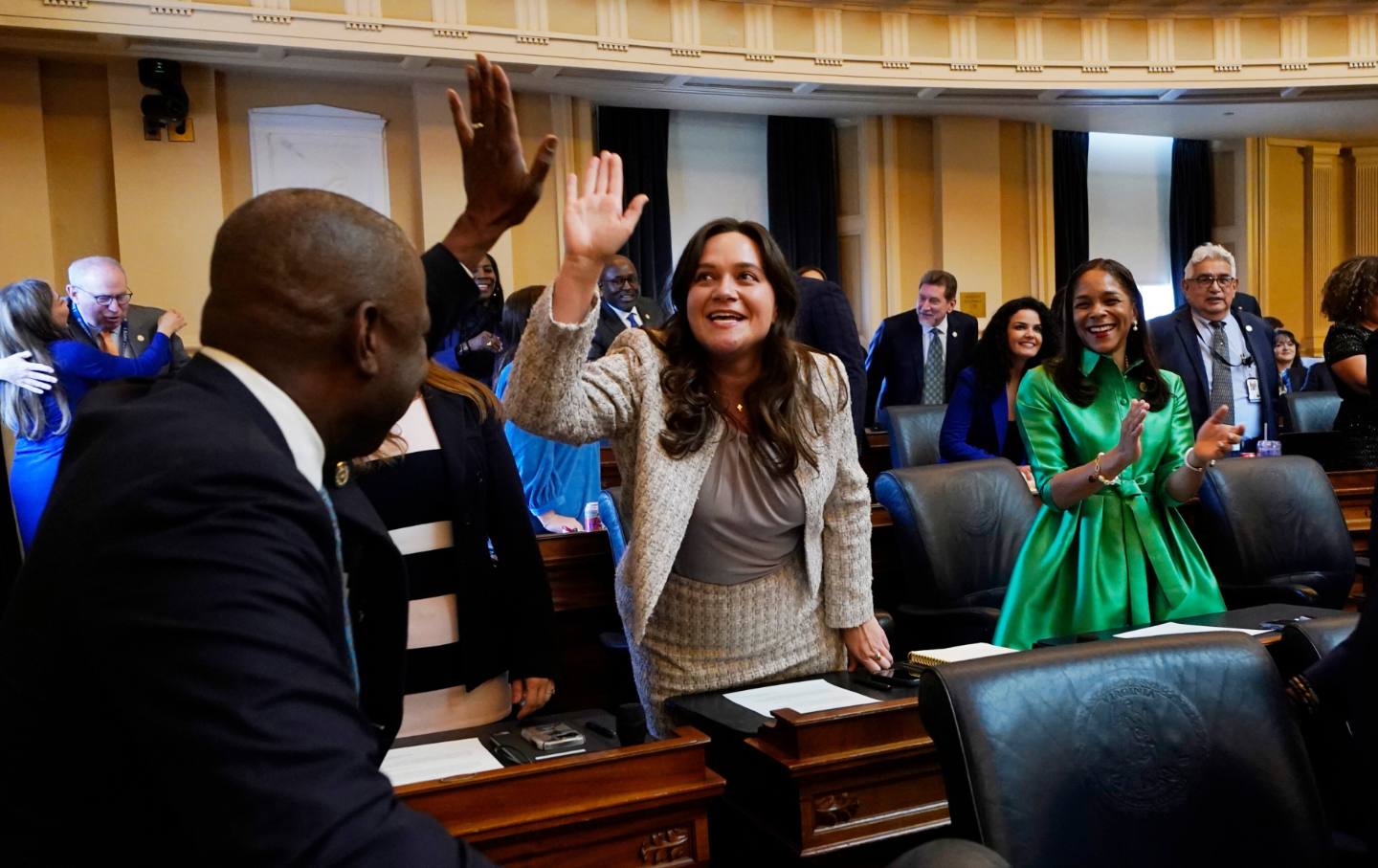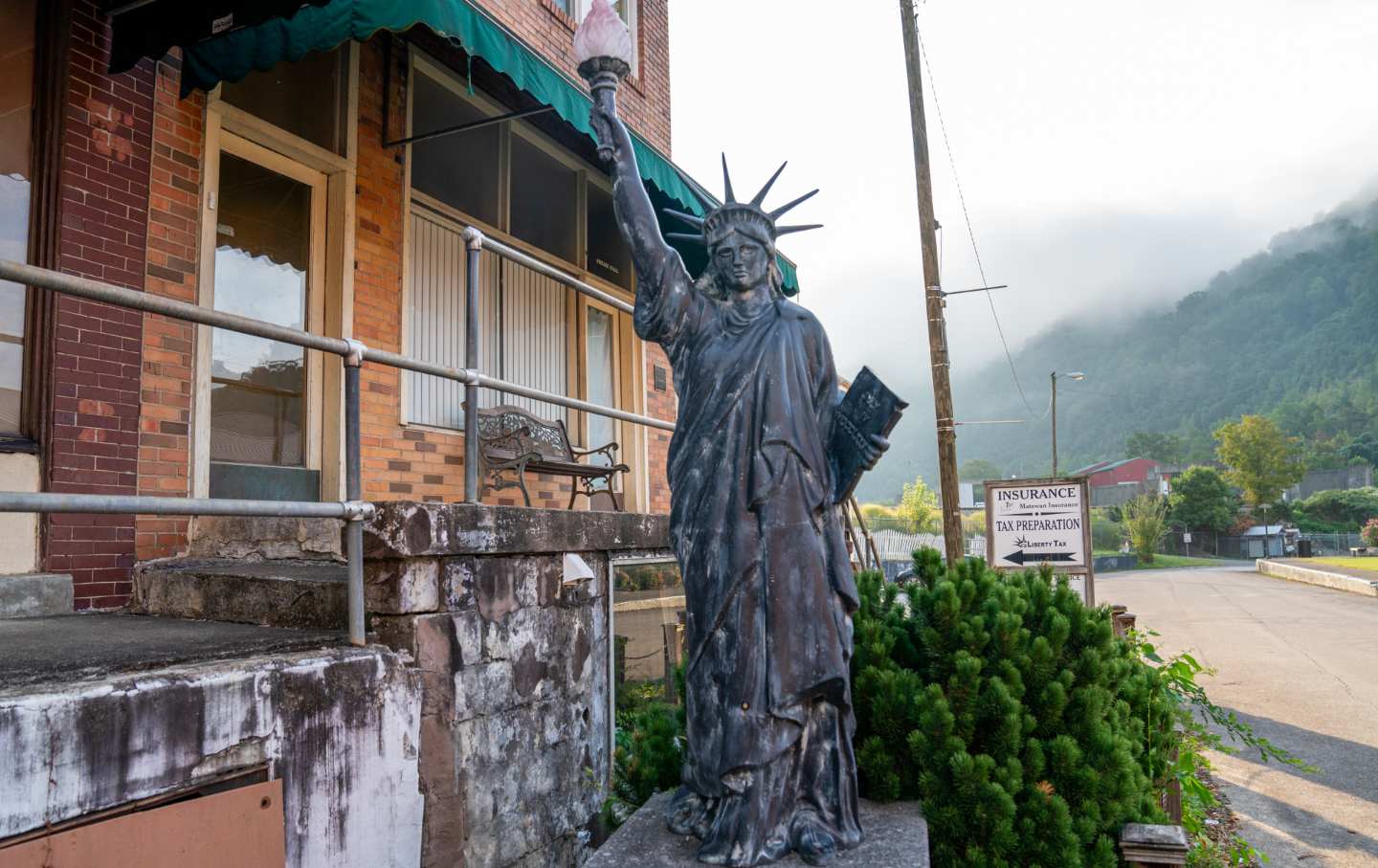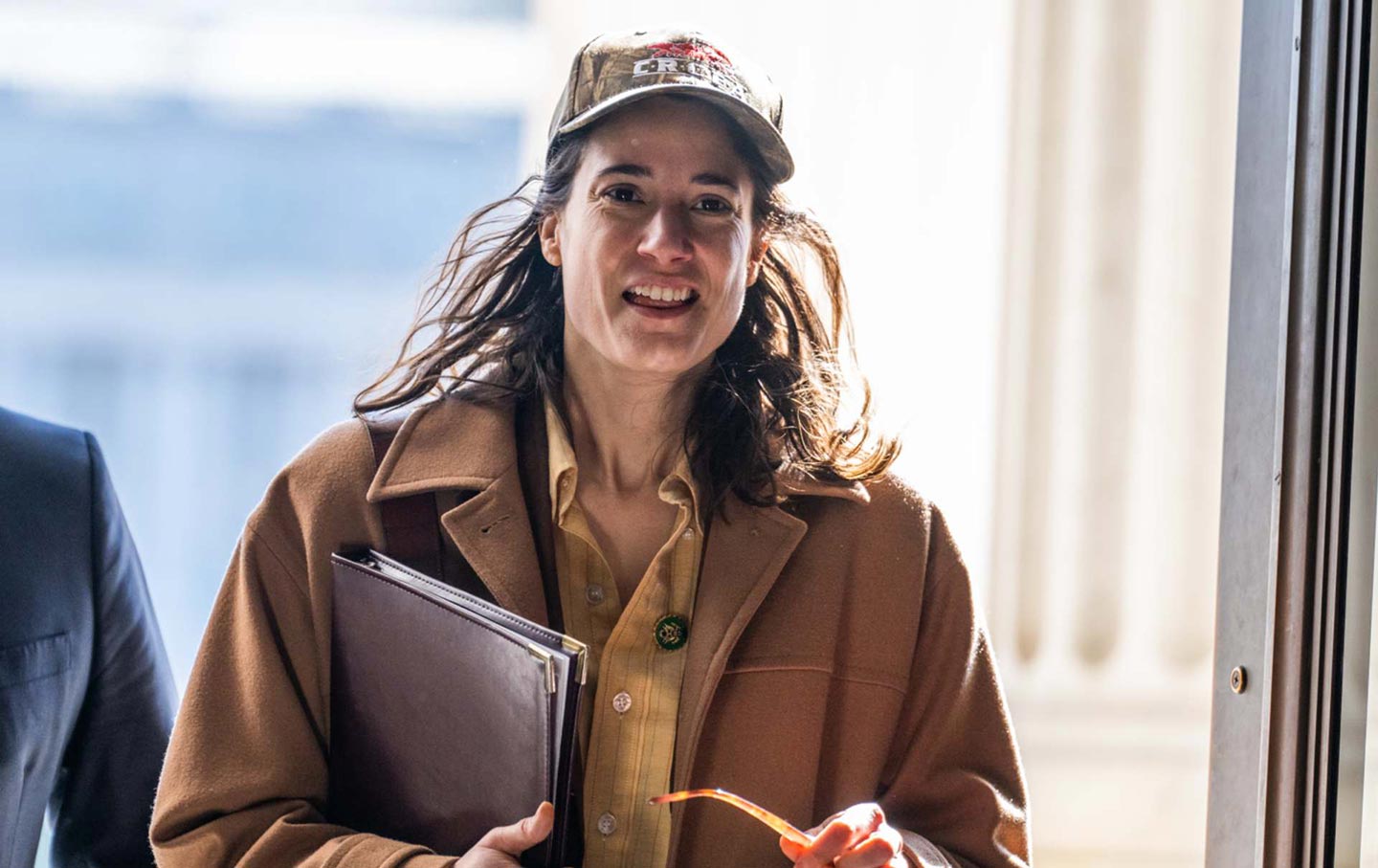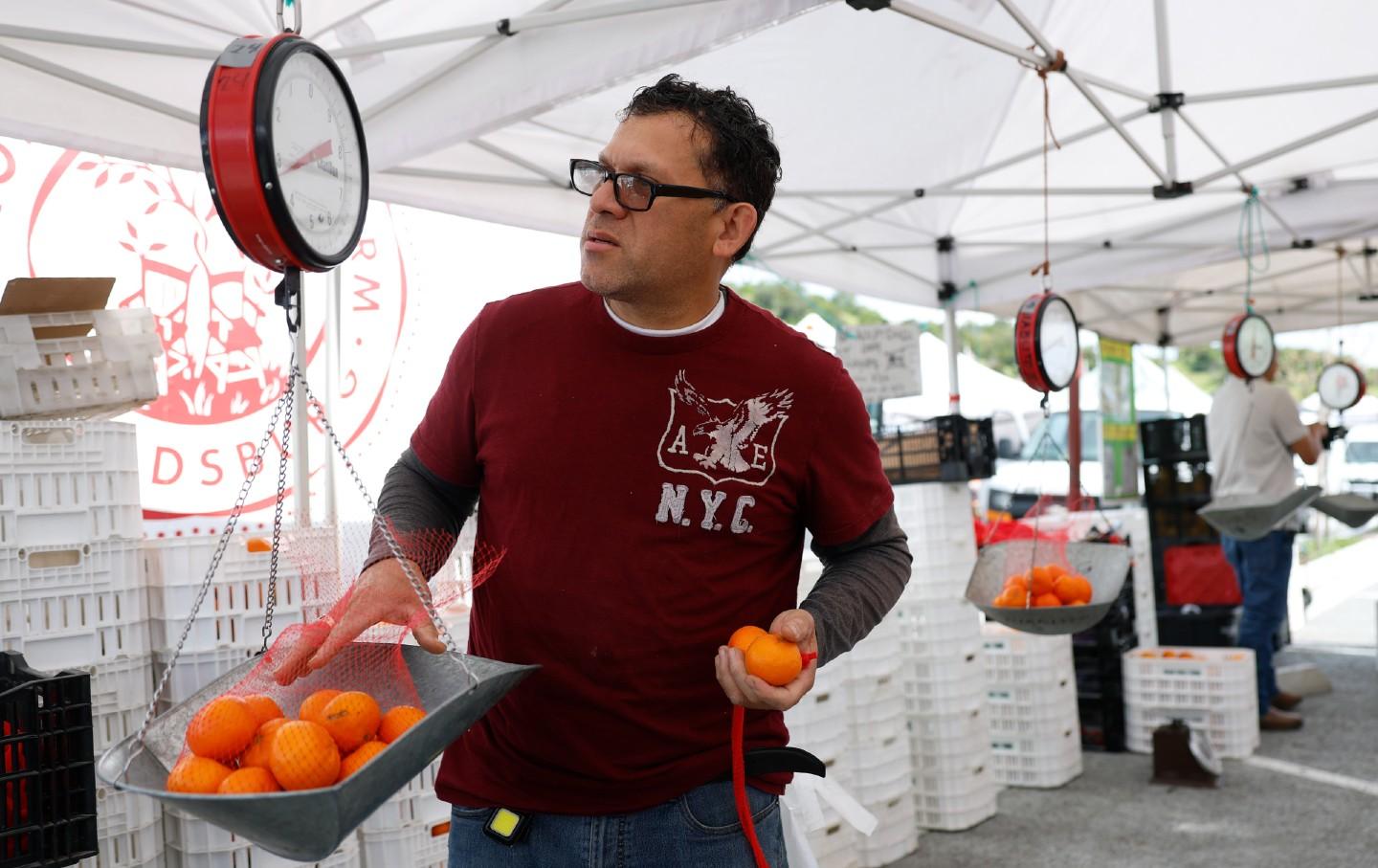Democrats Dismiss JD Vance at Their Peril
Calling the Ohio senator “weird” may feel satisfying. Pundits have dismissed him as a drag on the ticket. But the smarter play would still be to steal his thunder.
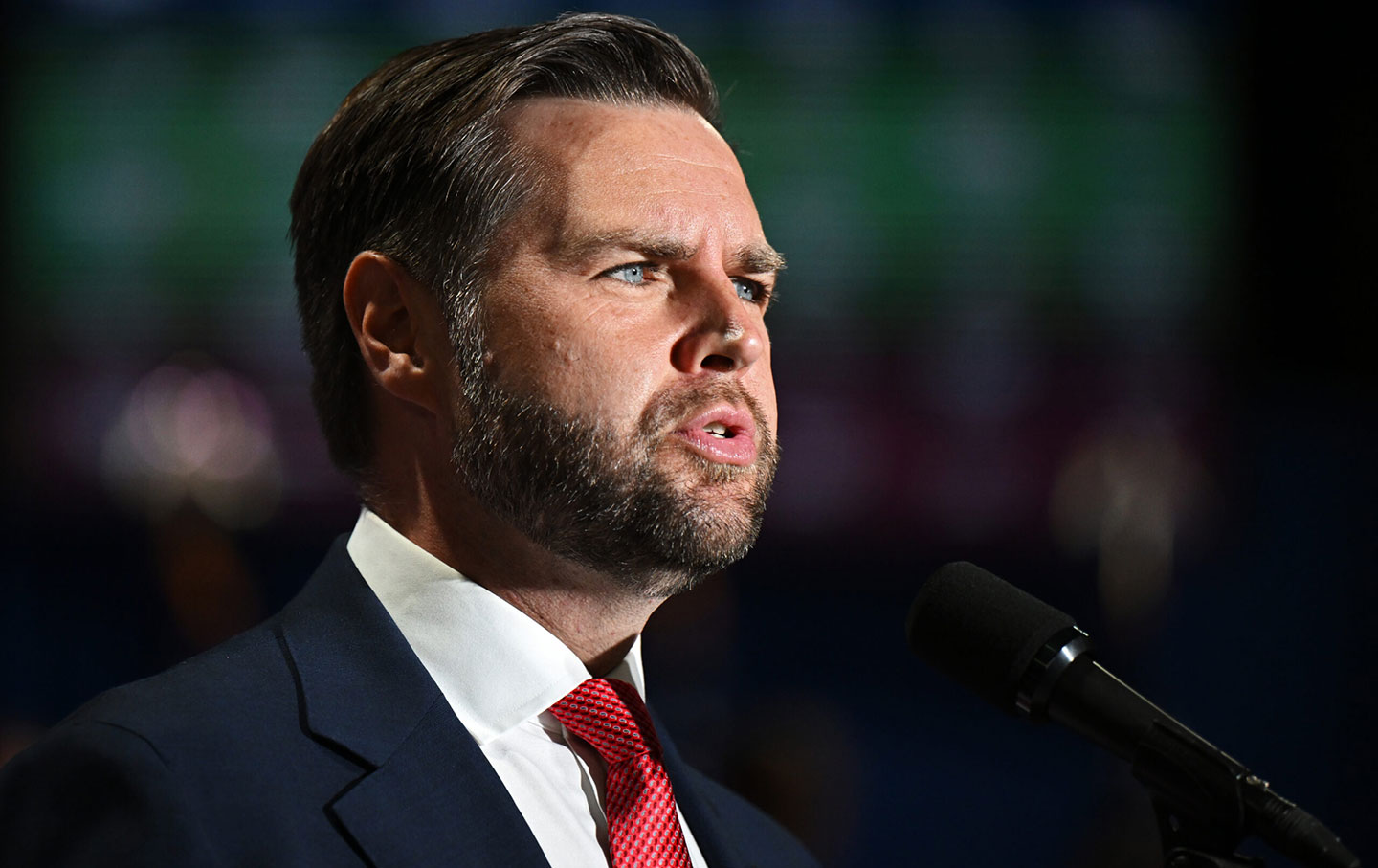

In 2017, I (Anthony) was invited to Oberlin College to debate JD Vance, the recently famous author of Hillbilly Elegy. I came to the event loaded for bear: Like most Appalachians I knew, I objected to the simplistic conclusions he had drawn in the book, often couched in stereotypes of the region’s people and culture. Vance’s memoir took a leap from his personal experience to inform the non-Appalachian world that the roots of the region’s problems lay not in a century of extractive industries, absentee land ownership, or disinvestment. Rather, the problem was a dysfunctional culture—and lazy people on the dole.
Having lived and worked in Appalachia for 40 years, I was eager and, I thought, well prepared to unravel Vance’s arguments. But once the debate got under way, I found him smart and self-assured—and also willing to acknowledge some of my critique, with grace. I raised most of the points I’d planned to make, but Vance won that debate.
Today, many on the left describe Trump’s VP pick as nothing more than a shill for Silicon Valley elites, a faux populist devoid of substance, selling something that nobody is buying. That’s what I thought walking onto that stage, and I got my ass kicked. Progressives and Democrats are now in danger of making the same mistake.
Vance says plenty of things that alarm and repel us. He has endorsed a federal ban on abortion after the first 15 weeks of pregnancy. He issues inflammatory broadsides against undocumented immigrants, blaming them for the shortage of affordable housing and the abundance of opioids. He denies that carbon emissions cause climate change. And he purports to believe that the 2020 election was stolen.
This is the MAGA side of Vance, the side that’s gratifyingly easy to denounce. But there’s another Vance, the one who not only sounds like a progressive populist but acts like one. Populist Vance worked with Elizabeth Warren (D-MA) on legislation that would claw back compensation for the executives of failed banks, and with Sheldon Whitehouse (D-RI) to eliminate tax-free corporate mergers. He cosponsored a bill to lower the price of insulin. And after the catastrophic train derailment in East Palestine, he teamed up with Sherrod Brown (D-OH) to introduce the Railway Safety Act of 2023.
Vance pays frequent tribute to the work ethic and to the hardships faced by working Americans. In his acceptance speech at the Republican National Convention, he said, “It’s about the auto worker in Michigan, wondering why out-of-touch politicians are destroying their jobs. It’s about the factory worker in Wisconsin who makes things with their hands and is proud of American craftsmanship.”
Whether genuine or contrived, Vance’s rhetorical displays of empathy make people feel respected. Paired with anti-corporate zeal, it’s a potent formula for wooing an electorate with an increasingly populist bent.
Popular
“swipe left below to view more authors”Swipe →Vance tells a story featuring clear villains and victims: “Wall Street barons” (his words) crashed the economy, and Democrats supported bad trade deals that shattered factory towns. (The Republicans’ role in abetting deindustrialization is omitted here.) He smoothly transitions to a set of misleading conclusions: Open borders caused wages to stagnate; bad trade deals opened the door to fentanyl; Trump upended the Washington consensus, and we were all the better for it until Biden ruined everything.
Because Vance gives voice to what’s true and deeply felt—that “America’s ruling class wrote the checks, [and] communities like mine paid the price”—even his falsehoods have the ring of truth. Trump has often been called a faux populist, and the label fits. But Vance’s populism has a few real teeth. He sharpens them on immigrants—but that won’t keep people from voting for him, given the majority support for restricting immigration levels.
What Vance and Trump understand is what the Democratic strategy firm American Family Voices has made clear: In 2016, in the factory towns that suffered the heaviest job losses as a result of bad trade deals, longtime Democratic voters jumped ship. As far as they’re concerned, the American dream has been strangled in its sleep by Democrat-enabled corporate raiders, and they’re not voting blue again until this is acknowledged.
If Democrats want to beat the Trump-Vance ticket, they need to offer a genuine populist alternative with all of Vance’s professed respect for working people and anti-corporate zeal—and none of his xenophobia. Yes to rail safety and monopoly-busting; no to abortion bans and unfettered oil and gas extraction. Yes to union power and working-class and rural pride; no to immigrant scapegoating.
Pro-labor and corporate-accountability measures should come easily to Democrats, who have reconnected under Biden with their roots as the party of working people. What’s harder is to frame policies and programs in inclusive terms for the betterment of all working- and middle-class Americans, not just specific marginalized groups.
Biden understood this. Railing against Big Ag and empathizing with distressed family farmers in Minnesota, he said, “It’s about making things in rural America again. Right now, the farmers and ranchers who actually grow the food only see a small percentage of the profit when the food is sold.” He didn’t add that unfair competition hits farmers of color the hardest—a social justice truism that makes many whites worry their interests will be neglected.
While Trump and Vance try to divide Americans along nativist lines, left populism pulls in the opposite direction, uniting the people—of all backgrounds—against the elites. Working- and middle-class racial unity is intrinsic to left populism, just as scapegoating and “othering” are to right-wing populism. This goes double in the overwhelmingly working-class rural and battleground districts with little appetite for privilege discourse.
Inclusive populism is the only counterweight to a program of ethno-nationalist populism. Without it, the Democratic ticket will likely lose to a pair of grievance entrepreneurs, one of whom is hawking some actual solutions.

